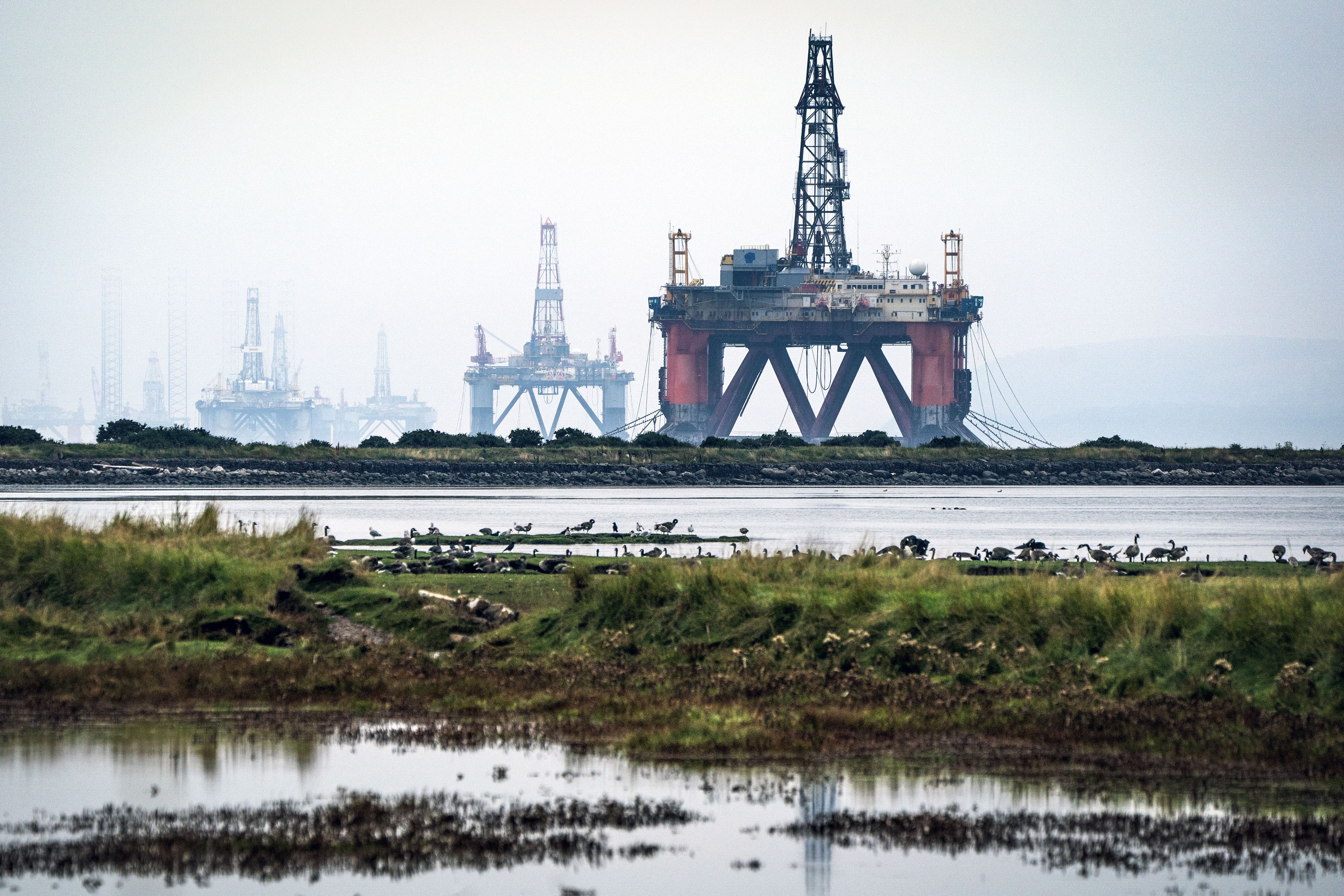Starmer rejects claims thousands of jobs at risk due to oil and gas stance
The party has said it would not allow new licences for oil and gas exploration if Sir Keir becomes prime minister after the July 4 election.

Your support helps us to tell the story
From reproductive rights to climate change to Big Tech, The Independent is on the ground when the story is developing. Whether it's investigating the financials of Elon Musk's pro-Trump PAC or producing our latest documentary, 'The A Word', which shines a light on the American women fighting for reproductive rights, we know how important it is to parse out the facts from the messaging.
At such a critical moment in US history, we need reporters on the ground. Your donation allows us to keep sending journalists to speak to both sides of the story.
The Independent is trusted by Americans across the entire political spectrum. And unlike many other quality news outlets, we choose not to lock Americans out of our reporting and analysis with paywalls. We believe quality journalism should be available to everyone, paid for by those who can afford it.
Your support makes all the difference.Labour leader Sir Keir Starmer has rejected claims his party’s stance on oil and gas would cost jobs in the North Sea.
The party has said it would not allow new licences for oil and gas exploration if Sir Keir becomes prime minister after the July 4 election.
But some in the north east of Scotland, including the Aberdeen and Grampian Chamber of Commerce this week, have said the next government has 100 days to save 100,000 jobs in the sector.
“We’re not going to turn the pipes off instantaneously, that’s never been part of our plan,” he told BBC Radio Scotland.
“We’re not going to revoke licences… that means that oil and gas will be part of the mix for decades to come.
“The question is what we do about the transition.”
“I do reject that analysis,” he said when questioned on potential job losses.
“In fact, I am absolutely convinced that the transition could bring more jobs to Scotland and jobs that will last for decades.”
Sir Keir went on to compare the current situation with the end of coal mining in Britain during the premiership of Margaret Thatcher.
“I think a huge mistake was made when coal started coming to an end and the government of the day didn’t plan for the future and I’m not prepared to let an incoming Labour Government be in that position,” he said.
“We have to plan for the future, do the transition properly and that is the best way to ensure that jobs are there, not just for this generation, but for the next generation after that.”
Sir Keir was also questioned on GB Energy, one of the party’s key pledges in this election campaign, which he said would be an “investment vehicle” as opposed to an energy generation company.
The firm, which he has maintained would be headquartered in Scotland, would be set up with £8 billion of borrowing and would attract, the Labour leader hoped, three times as much in private investment.
“It would be an investment vehicle, not an energy company,” he said.
“The money going into it would be public money, but used to trigger private investment alongside it.”
Sir Keir will travel to Scotland on Friday to speak alongside Scottish Labour leader Anas Sarwar, laying out the party’s six promises to Scotland ahead of the July 4 election.
Speaking ahead of the visit, Sir Keir said: “Labour will deliver a decade of national renewal and the steps set out today are our down payment on that promise.
“From cutting bills to boosting pay to protecting the NHS, the Labour government I lead will be on your side and relentlessly focused on the issues that matter to you.”
However, Scotland’s First Minister John Swinney claimed Sir Keir is “offering no change at all” and has challenged the Labour leader to produce an emergency budget to reverse “Tory austerity cuts”.
Scottish Tory chairman Craig Hoy said the party had “already been at the heart of government” in Scotland by backing “the failed SNP-Green coalition on some of their worst decisions”.
“On raising taxes, the disastrous gender self-ID legislation, the illiberal Hate Crimes Act and profoundly damaging rent controls, Scottish Labour MSPs have lined up to back the SNP,” he added.